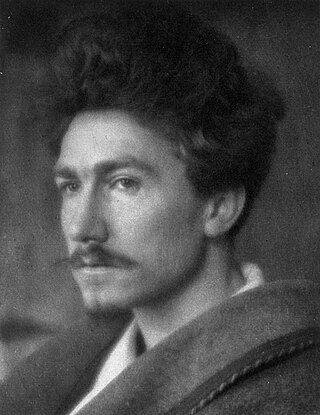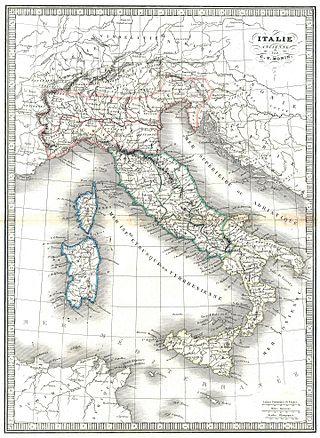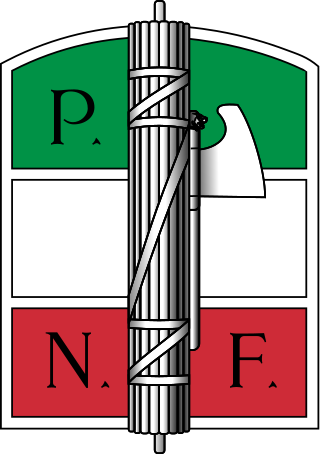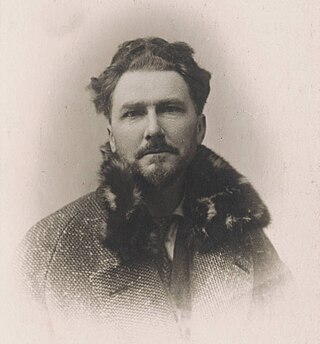
Confucius, born Kong Qiu (孔丘), was a Chinese philosopher of the Spring and Autumn period who is traditionally considered the paragon of Chinese sages, as well as the first teacher in China to advocate for mass education. Much of the shared cultural heritage of the Sinosphere originates in the philosophy and teachings of Confucius. His philosophical teachings, called Confucianism, emphasized personal and governmental morality, correctness of social relationships, justice, kindness, sincerity, and a ruler's responsibilities to lead by virtue.

Thomas Stearns Eliot was a poet, essayist and playwright. He is considered to be one of the 20th century's greatest poets, as well as a central figure in English-language Modernist poetry. His use of language, writing style, and verse structure reinvigorated English poetry. He is also noted for his critical essays, which often reevaluated long-held cultural beliefs.

Ezra Weston Loomis Pound was an expatriate American poet and critic, a major figure in the early modernist poetry movement, and a collaborator in Fascist Italy and the Salò Republic during World War II. His works include Ripostes (1912), Hugh Selwyn Mauberley (1920), and his 800-page epic poem, The Cantos.

Imagism was a movement in early-20th-century poetry that favored precision of imagery and clear, sharp language. It is considered to be the first organized modernist literary movement in the English language. Imagism has been termed "a succession of creative moments" rather than a continuous or sustained period of development. The French academic René Taupin remarked that "it is more accurate to consider Imagism not as a doctrine, nor even as a poetic school, but as the association of a few poets who were for a certain time in agreement on a small number of important principles".

The Analects, also known as the Sayings of Confucius, is an ancient Chinese philosophical text composed of sayings and ideas attributed to Confucius and his contemporaries, traditionally believed to have been compiled by his followers. The consensus among scholars is that large portions of the text were composed during the Warring States period (475–221 BC), and that the work achieved its final form during the mid-Han dynasty. During the early Han, the Analects was merely considered to be a commentary on the Five Classics. However, by the dynasty's end the status of the Analects had grown to being among the central texts of Confucianism.

Basil Cheesman Bunting was a British modernist poet whose reputation was established with the publication of Briggflatts in 1966, generally regarded as one of the major achievements of the modernist tradition in English. He had a lifelong interest in music that led him to emphasise the sonic qualities of poetry, particularly the importance of reading poetry aloud: he was an accomplished reader of his own work.

Thomas Ernest Hulme was an English critic and poet who, through his writings on art, literature and politics, had a notable influence upon modernism. He was an aesthetic philosopher and the 'father of imagism'.

The Cantos by Ezra Pound is a long poem in 109 sections plus a number of drafts and fragments added as a supplement at the request of the poem's American publisher, James Laughlin. Most of it was written between 1915 and 1962, although much of the material in the first three cantos was abandoned or redistributed in 1923, when Pound prepared the first instalment of the poem, A Draft of XVI Cantos. It is a book-length work, widely considered to present formidable difficulties to the reader. Strong claims have been made for it as the most significant work of modernist poetry of the twentieth century. As in Pound's prose writing, the themes of economics, governance and culture are integral to its content.

Dorothy Shakespear was an English artist. She was the daughter of novelist Olivia Shakespear and the wife of American poet Ezra Pound. One of a small number of women vorticist painters, her art work was published in BLAST, the short-lived but influential literary magazine.

Italian fascism, also classical fascism and Fascism, is the original fascist ideology, which Giovanni Gentile and Benito Mussolini developed in Italy. The ideology of Italian Fascism is associated with a series of political parties led by Mussolini: the National Fascist Party (PNF), which governed the Kingdom of Italy from 1922 until 1943, and the Republican Fascist Party (PFR), which governed the Italian Social Republic from 1943 to 1945. Italian fascism also is associated with the post–war Italian Social Movement (MSI) and later Italian neo-fascist political organisations.

The National Fascist Party was a political party in Italy, created by Benito Mussolini as the political expression of Italian fascism and as a reorganisation of the previous Italian Fasces of Combat. The party ruled the Kingdom of Italy from 1922 when Fascists took power with the March on Rome until the fall of the Fascist regime in 1943, when Mussolini was deposed by the Grand Council of Fascism. It was succeeded, in the territories under the control of the Italian Social Republic, by the Republican Fascist Party, and ultimately dissolved at the end of World War II.

Stephen Romer, FRSL is an English poet, academic and literary critic.

A Lume Spento is a 1908 poetry collection by Ezra Pound. Self-published in Venice, it was his first collection.

Cathay (1915) is a collection of classical Chinese poetry translated into English by modernist poet Ezra Pound based on Ernest Fenollosa's notes that came into Pound's possession in 1913. At first Pound used the notes to translate Noh plays and then to translate Chinese poetry to English, despite a complete lack of knowledge of the Chinese language. The volume's 15 poems are seen less as strict translations and more as new pieces in their own right; and, in his bold translations of works from a language he was unfamiliar with, Pound set the stage for modernist translations.

The Spirit of Romance is a 1910 book of literary criticism by the poet Ezra Pound. It is based on lectures he delivered at the Regent Street Polytechnic in London between 1908 and 1909 and deals with a variety of European literatures. As with Pound's later, unfinished poem The Cantos, the book follows "a pattern, at once historical and atemporal, of cultural beginnings and rebeginnings".

The expatriate American poet Ezra Pound recorded or composed hundreds of broadcasts in support of fascism for Italian radio during World War II and the Holocaust in Italy. Based in Italy since 1924, Pound collaborated with the fascist regime of Benito Mussolini and expressed support for Adolf Hitler. Written at first for EIAR, and later for a new radio station in the Salò Republic, a Nazi puppet state in northern Italy, the broadcasts contained deeply antisemitic and racist material. They were transmitted to England, central Europe, and the United States, mostly in English, but also in Italian, German, and French.

Jefferson and/or Mussolini: L'Idea Statale Fascism as I Have Seen It is a book by the American ex-patriate poet and fascist collaborator Ezra Pound. It was first published in 1935 by Stanley Nott Ltd in London.

If This Be Treason ... is a 33-page booklet published privately in Italy in early 1948 by Olga Rudge, mistress of the American poet Ezra Pound. Pound, who lived in Italy with his wife from 1924 to 1945, was indicted in absentia for treason in 1943 by the United States District Court for the District of Columbia after he made hundreds of radio broadcasts, pro-Axis and deeply antisemitic, on behalf of Fascist Italy during World War II and the Holocaust in Italy. The title phrase had previously been used in a speech by Patrick Henry in 1765.
Frank Vigor Morley was an American mathematician, author, editor and publishing executive. As had his two older brothers, Christopher and Felix, Morley attended Haverford College and then studied at the University of Oxford as a Rhodes Scholar. Morley worked in book publishing in London and New York and played a significant role in the early history of the publishing firm Faber and Faber, where he became a close friend of the poet T. S. Eliot.

The Vienna Café was a coffee house and restaurant at 24–28 New Oxford Street, London. Located opposite Mudie's Lending Library and near the British Museum Reading Room in Bloomsbury, it became known in the early 20th century as a meeting place for writers, artists, and intellectuals. Regular visitors included Ezra Pound, H. G. Wells, and W. B. Yeats.

















